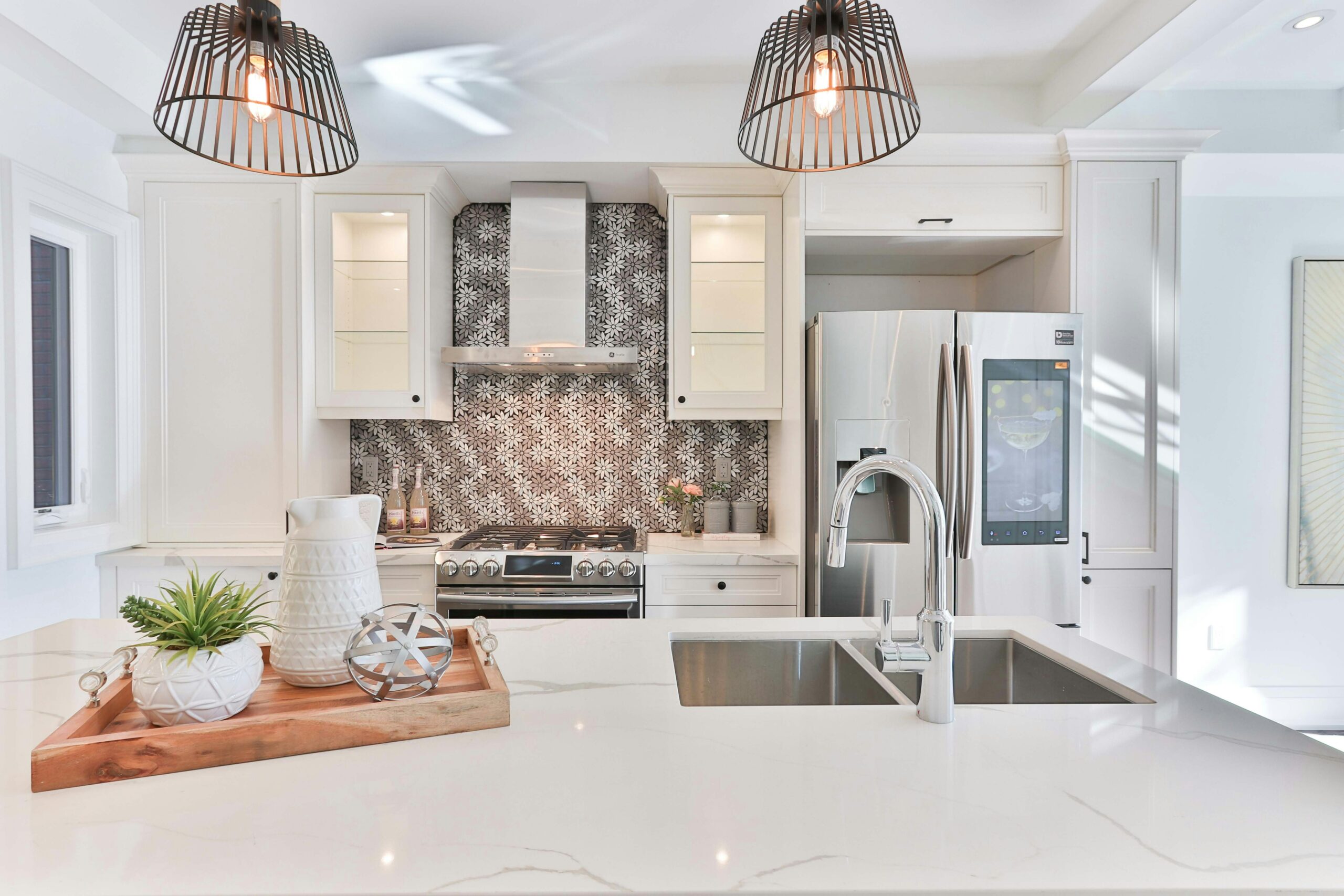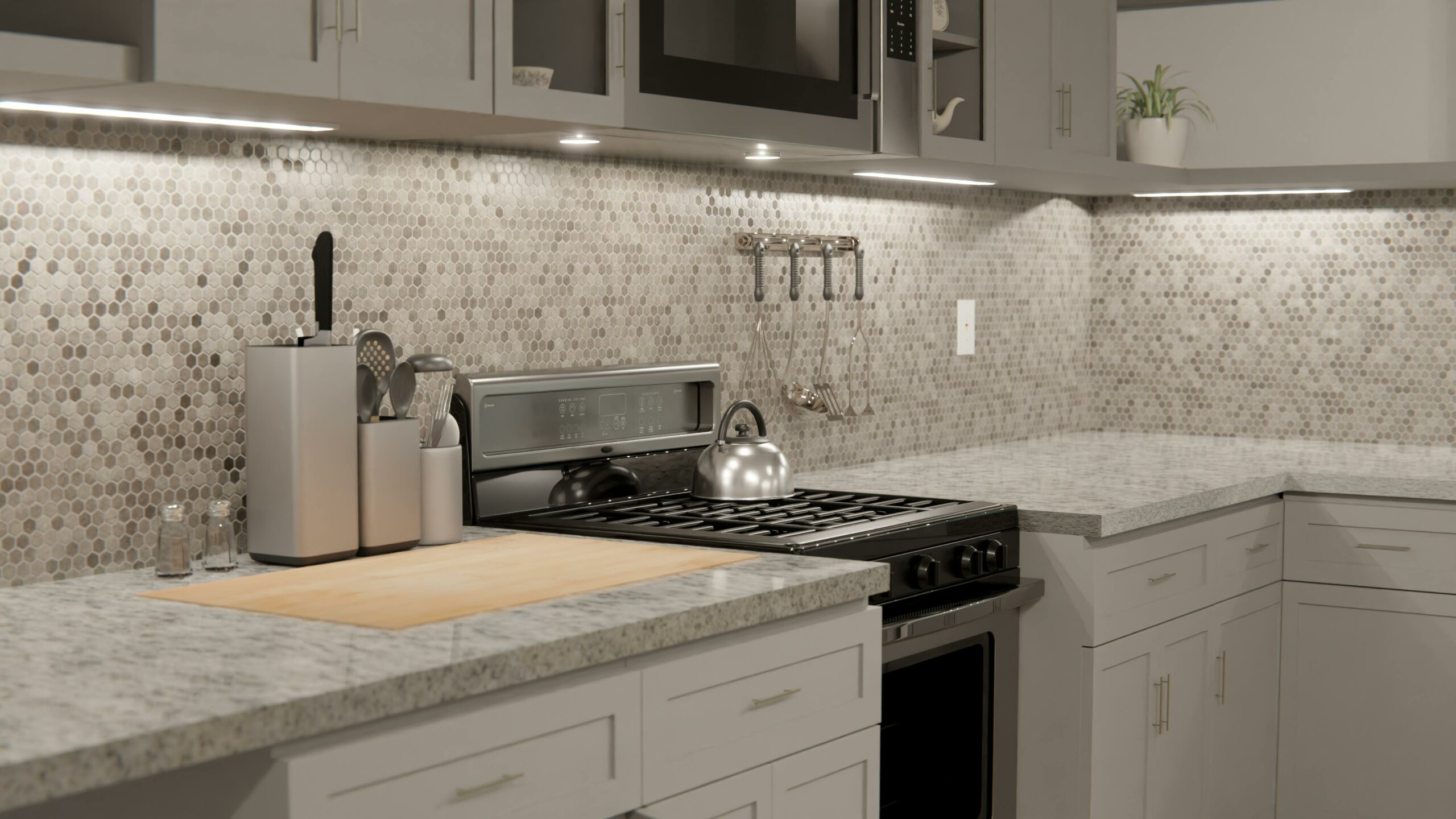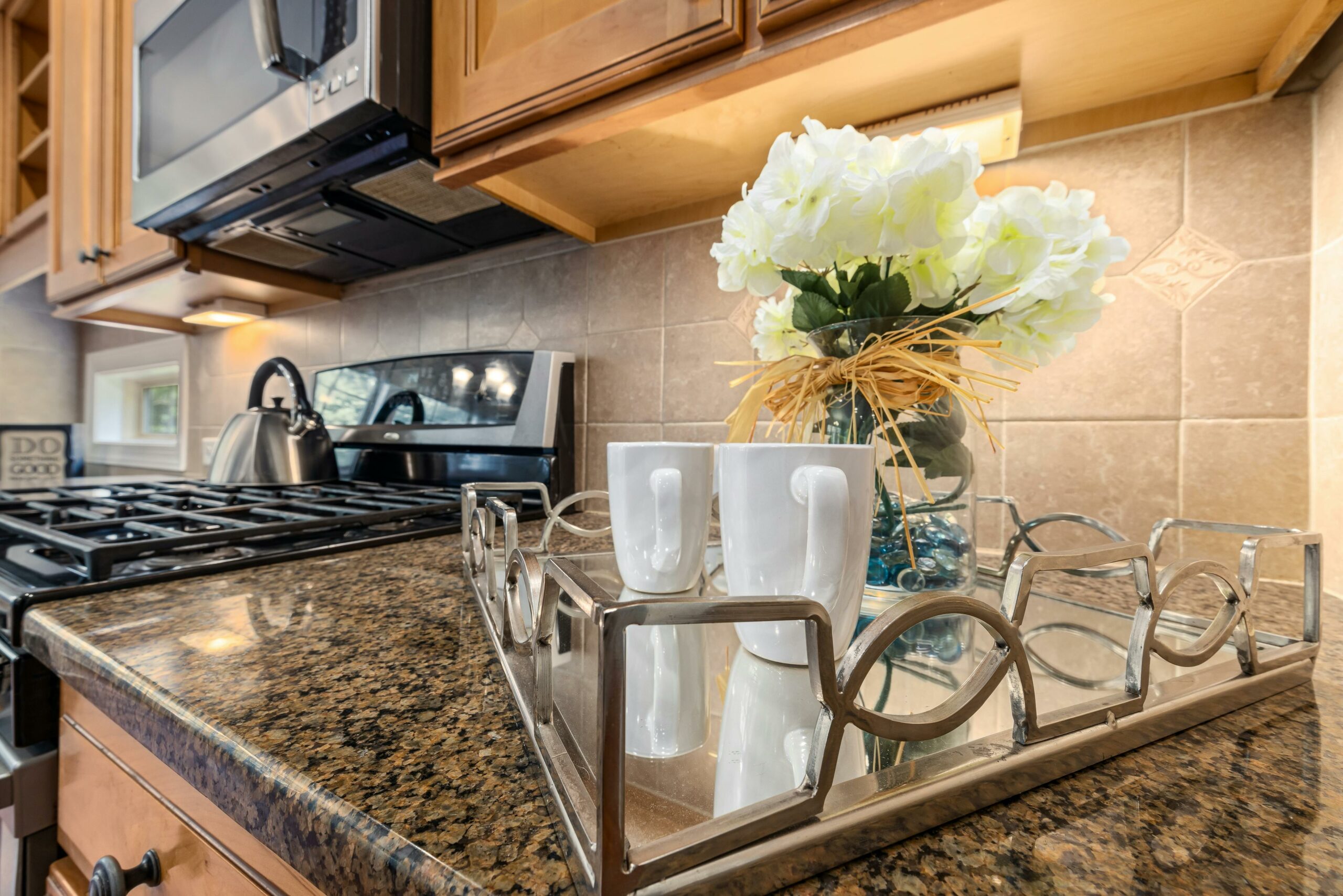A Quartz countertop is a beautiful and durable option for any home. This popular material can enhance the aesthetic of your kitchen, bathroom, or any other space, combining both form and function to deliver impressive results. In spite of being incredibly durable, Quartz countertops can be wonderfully diverse, coming in a variety of colors and textures. They can mimic the elegance of natural stone, exhibit a monochromatic look, or even mirror the twinkling splendor of a galaxy.
Furthermore, a Quartz countertop affords homeowners the much-desired benefit of low maintenance. This, among a myriad of other intriguing factors, makes it a countertop material worth considering.
This comprehensive guide provides an in-depth analysis of Quartz countertops. We will explore its durability, color selection, maintenance procedures, manufacturing process, pros and cons, comparison to other materials, its benefits in the kitchen, cost factors, installation process, and latest trends in design.
By the end of this guide, your understanding of Quartz countertops will have deepened, providing a solid foundation for making informed decisions about your kitchen or bathroom remodeling project.
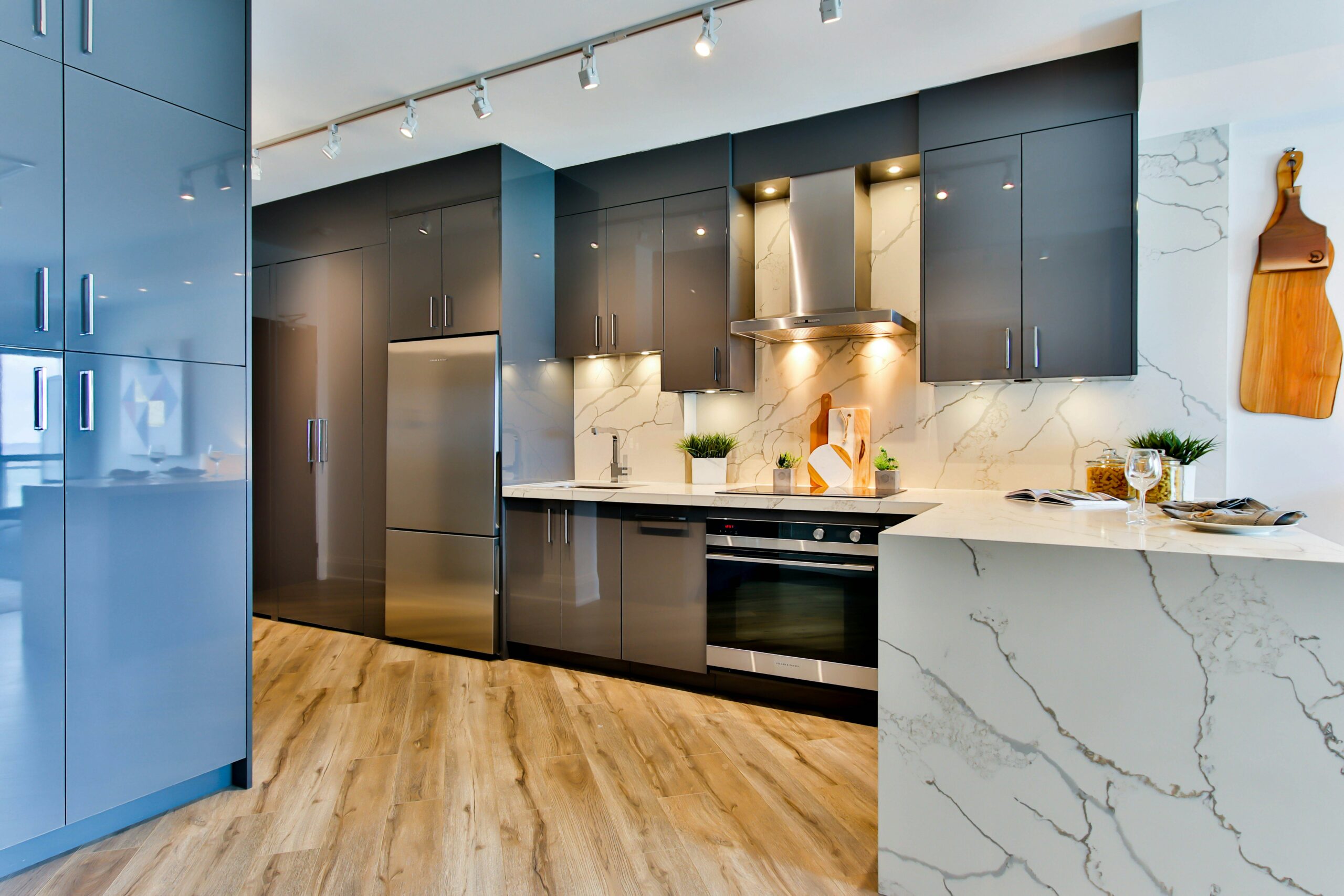
Understanding the Durability of a Quartz Countertop
When it comes to choosing a countertop material for your kitchen or bathroom, durability is often a top priority. Quartz countertops have gained popularity in recent years due to their exceptional durability and strength. Understanding the durability of a quartz countertop can help you make an informed decision about whether it is the right choice for your home.
What Makes Quartz Countertops Durable?
Quartz countertops are made from a combination of natural quartz crystals and resin binders. This unique composition gives them a high level of durability. The resin binders act as a protective layer, making the countertop resistant to stains, scratches, and heat. Additionally, quartz countertops are non-porous, which means they are highly resistant to water damage and bacterial growth.
Resistance to Stains and Scratches
One of the key advantages of quartz countertops is their resistance to stains and scratches. The non-porous surface of quartz prevents liquids from seeping into the material, making it easy to clean up spills and preventing stains from setting in. Additionally, the hardness of quartz makes it highly resistant to scratches and abrasions, ensuring that your countertop will maintain its pristine appearance for years to come.
Heat Resistance
Quartz countertops are also highly heat resistant. While it is not recommended to place extremely hot pots or pans directly on the surface, quartz can withstand moderate heat without being damaged. This makes it a suitable choice for kitchen countertops where hot cooking utensils are frequently used.
Longevity
Due to their exceptional durability, quartz countertops have a long lifespan. With proper care and maintenance, they can last for decades without showing signs of wear and tear. This makes them a cost-effective choice in the long run, as you won’t have to worry about replacing your countertops anytime soon.
Ease of Maintenance
Another advantage of quartz countertops is their ease of maintenance. Unlike natural stone countertops, which require regular sealing, quartz countertops are virtually maintenance-free. They can be easily cleaned with mild soap and water, and there is no need for special sealants or cleaners.
In conclusion, the durability of quartz countertops is one of their biggest selling points. With their resistance to stains, scratches, heat, and their long lifespan, they are an excellent choice for homeowners looking for a durable and low-maintenance countertop option.
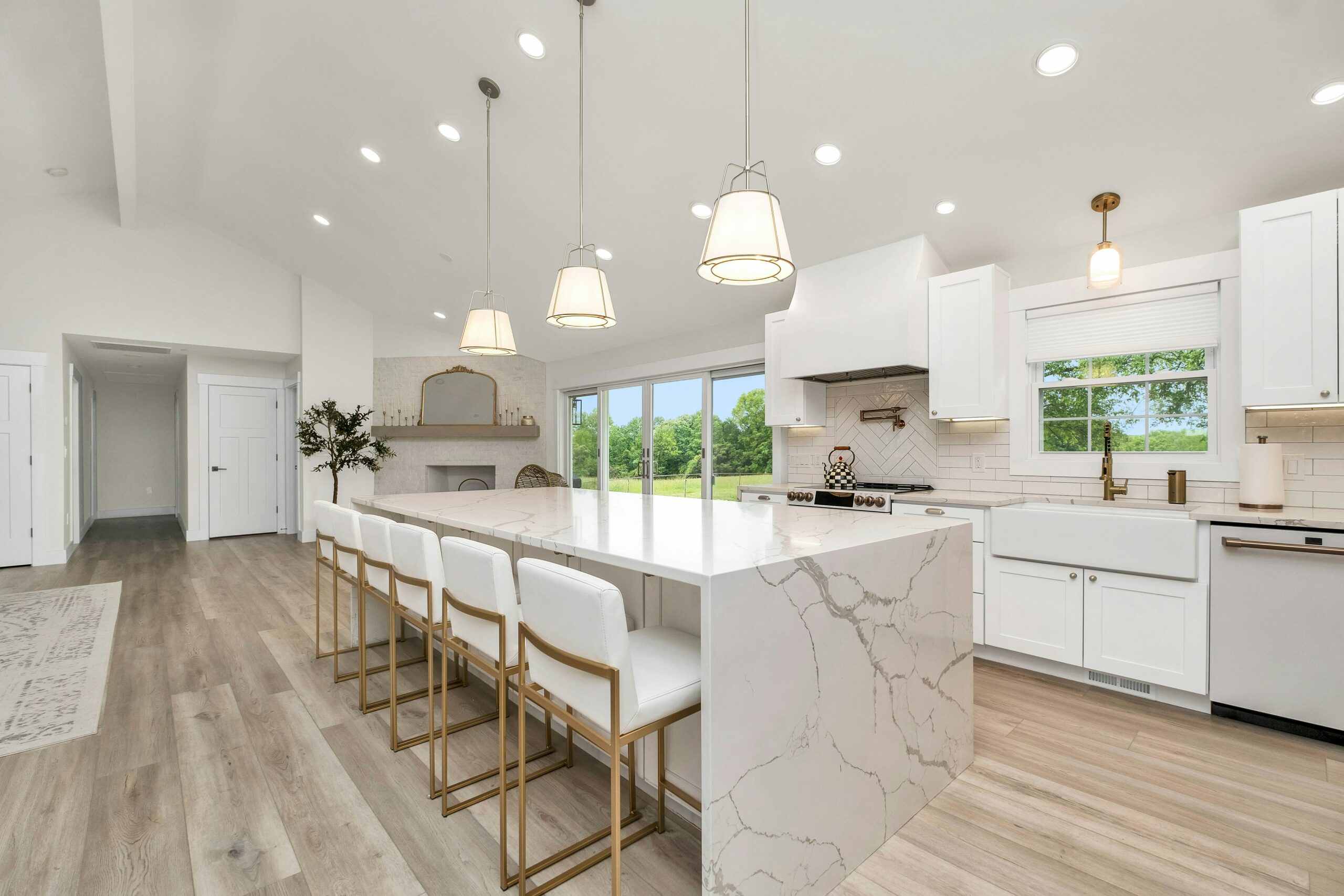
Choosing the Right Color for Your Quartz Countertop
When it comes to choosing a quartz countertop, one of the most important decisions you’ll have to make is selecting the right color. The color of your countertop can greatly impact the overall look and feel of your kitchen or bathroom, so it’s essential to choose wisely.
Consider the Style: The first thing to consider when choosing a color for your quartz countertop is the style of your space. Are you going for a modern, sleek look or a more traditional, rustic feel? The color of your countertop should complement the overall style and aesthetic of your kitchen or bathroom.
Think About the Lighting: Lighting plays a significant role in how colors appear. Natural light and artificial light can both affect the way your countertop color looks in your space. It’s a good idea to bring home samples of the quartz colors you’re considering and see how they look under different lighting conditions.
Consider the Rest of Your Décor: Your countertop should coordinate with the rest of your kitchen or bathroom décor. Take into account the colors of your cabinets, backsplash, and flooring. You want your countertop color to tie everything together and create a cohesive look.
Think About Longevity: While trends come and go, your countertop is a long-term investment. It’s essential to choose a color that you’ll still love years down the line. Neutral colors like white, gray, and beige are timeless and versatile, making them a popular choice for quartz countertops.
Consider Maintenance: Different colors of quartz may require different levels of maintenance to keep them looking their best. Lighter colors may show stains and spills more easily, while darker colors may show scratches more prominently. Consider your lifestyle and how much time and effort you’re willing to put into maintaining your countertop.
Get Samples: Finally, the best way to choose the right color for your quartz countertop is to get samples and see how they look in your space. Many quartz manufacturers offer small samples that you can take home and compare against your existing décor. This will give you a better idea of how the color will look in your kitchen or bathroom.
By considering the style, lighting, overall décor, longevity, maintenance, and getting samples, you can ensure that you choose the perfect color for your quartz countertop that will enhance the beauty and functionality of your space.
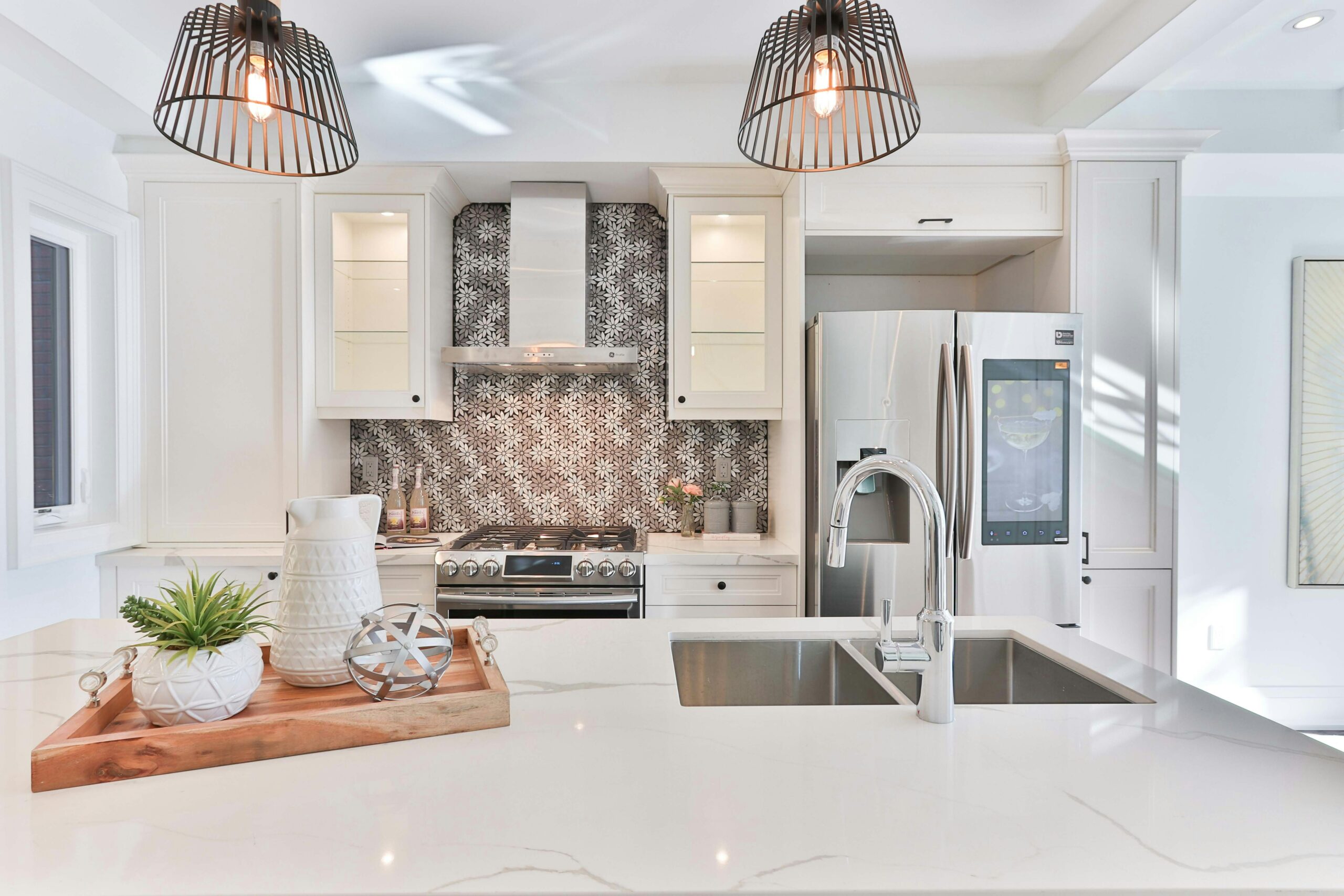
How to Clean and Maintain Your Quartz Countertop
Quartz countertops are known for their durability and low maintenance. With proper care and cleaning, you can keep your quartz countertop looking beautiful for years to come. Here are some tips on how to clean and maintain your quartz countertop:
1. Daily Cleaning
For daily cleaning, simply use a mild soap and warm water solution. Avoid using abrasive cleaners or scrub brushes, as they can scratch the surface of your countertop. Instead, use a soft cloth or sponge to gently wipe away any spills or stains.
2. Removing Stains
If you have stubborn stains on your quartz countertop, you can use a non-abrasive cleaner specifically designed for quartz surfaces. Apply the cleaner to the stain and let it sit for a few minutes. Then, gently scrub the stain with a soft cloth or sponge. Rinse the area with water and dry it thoroughly.
3. Avoid Harsh Chemicals
Quartz countertops are resistant to most household chemicals, but it’s still best to avoid using harsh chemicals on your countertop. This includes bleach, oven cleaners, and abrasive cleaners. These can cause discoloration or damage to the surface of your quartz countertop.
4. Preventing Damage
To prevent damage to your quartz countertop, always use cutting boards or trivets when placing hot pots or pans on the surface. Avoid dragging heavy objects across the countertop, as this can cause scratches. Use coasters or placemats to protect the surface from spills and stains.
5. Regular Sealing
Unlike natural stone countertops, quartz countertops do not require sealing. They are non-porous and resistant to stains. However, it’s still a good idea to periodically check for any signs of wear or damage and address them promptly.
6. Maintenance Tips
Here are some additional maintenance tips to keep your quartz countertop in top condition:
-
- Wipe up spills immediately to prevent staining.
-
- Avoid using abrasive sponges or scrub brushes.
-
- Use a cutting board when chopping or slicing food.
-
- Use trivets or hot pads to protect the surface from heat.
-
- Regularly clean the countertop with a mild soap and water solution.
By following these tips, you can ensure that your quartz countertop remains beautiful and functional for years to come. With its durability and low maintenance requirements, quartz is a popular choice for kitchen countertops.
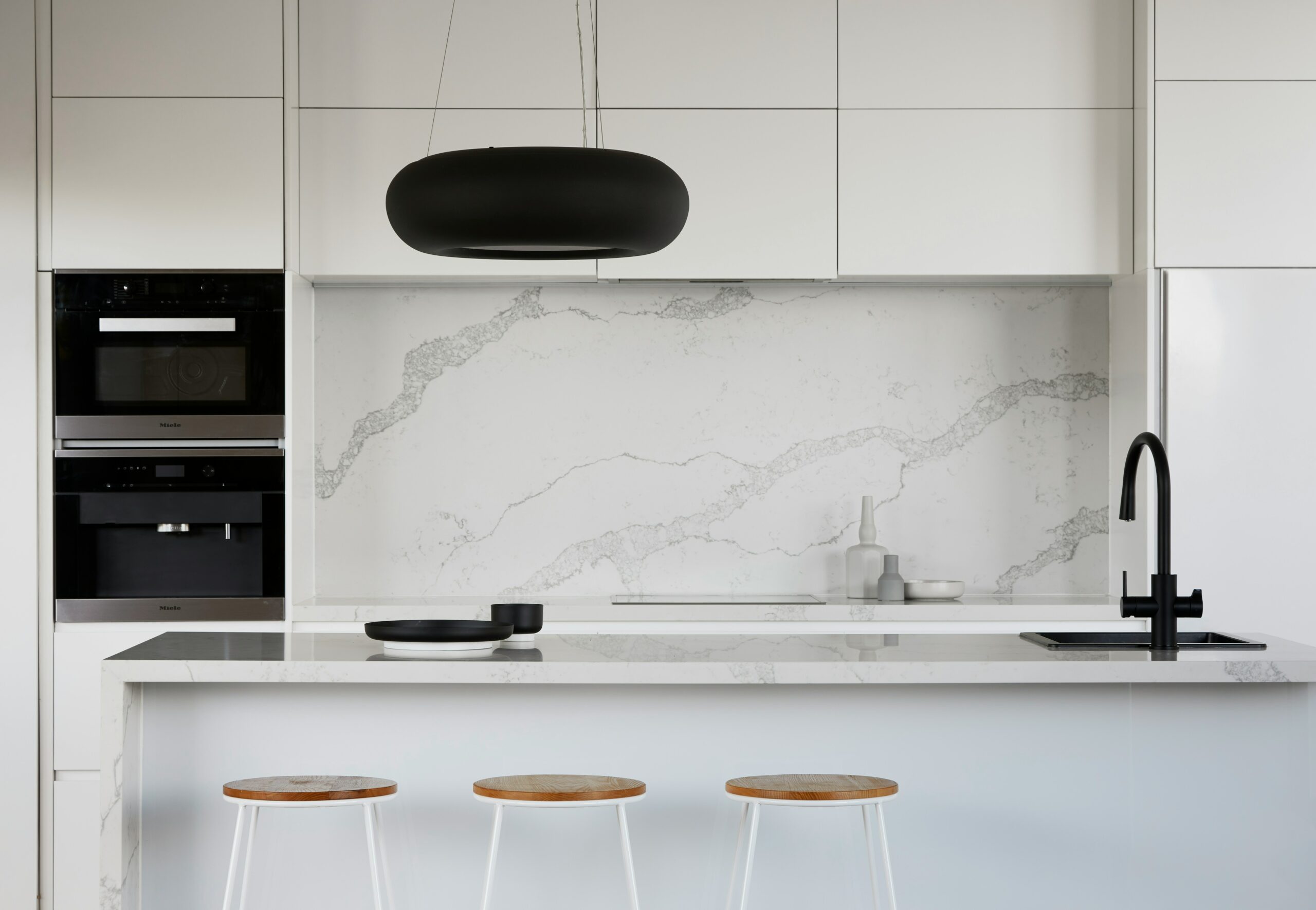
The Making of A Quartz Countertop
Quartz countertops are a popular choice for homeowners due to their durability, beauty, and low maintenance requirements. But have you ever wondered how these countertops are made? In this section, we will take a closer look at the fascinating process behind the creation of a quartz countertop.
1. Raw Material Selection
The first step in making a quartz countertop is selecting the raw materials. Quartz is a natural mineral that is mined from quarries. The selected quartz crystals are carefully inspected for quality and color consistency.
2. Mixing and Blending
Once the raw materials are selected, they are crushed and ground into a fine powder. This powder is then mixed with resin and pigments to create a uniform mixture. The ratio of quartz to resin may vary depending on the desired strength and appearance of the countertop.
3. Pressing and Forming
The mixture is then poured into a mold and pressed under high pressure to compact the materials together. This process helps to eliminate any air bubbles and ensures a solid and dense countertop slab.
4. Curing and Hardening
After the pressing process, the countertop slabs are transferred to a curing oven. The slabs are heated at a specific temperature for a certain period of time to allow the resin to harden and bond with the quartz particles. This curing process gives the countertop its strength and durability.
5. Polishing and Finishing
Once the slabs are fully cured, they are polished to achieve a smooth and glossy surface. This involves grinding the surface with different grits of diamond abrasives until the desired finish is achieved. The edges of the countertop are also shaped and polished to create a seamless and elegant look.
6. Quality Control
Before the quartz countertops are ready for installation, they undergo a rigorous quality control process. Each slab is inspected for any imperfections or defects. This ensures that only the highest quality countertops reach the market.
And there you have it! The making of a quartz countertop is a meticulous and precise process that combines nature’s beauty with advanced manufacturing techniques. The result is a stunning and durable countertop that will enhance the beauty and functionality of any kitchen or bathroom.
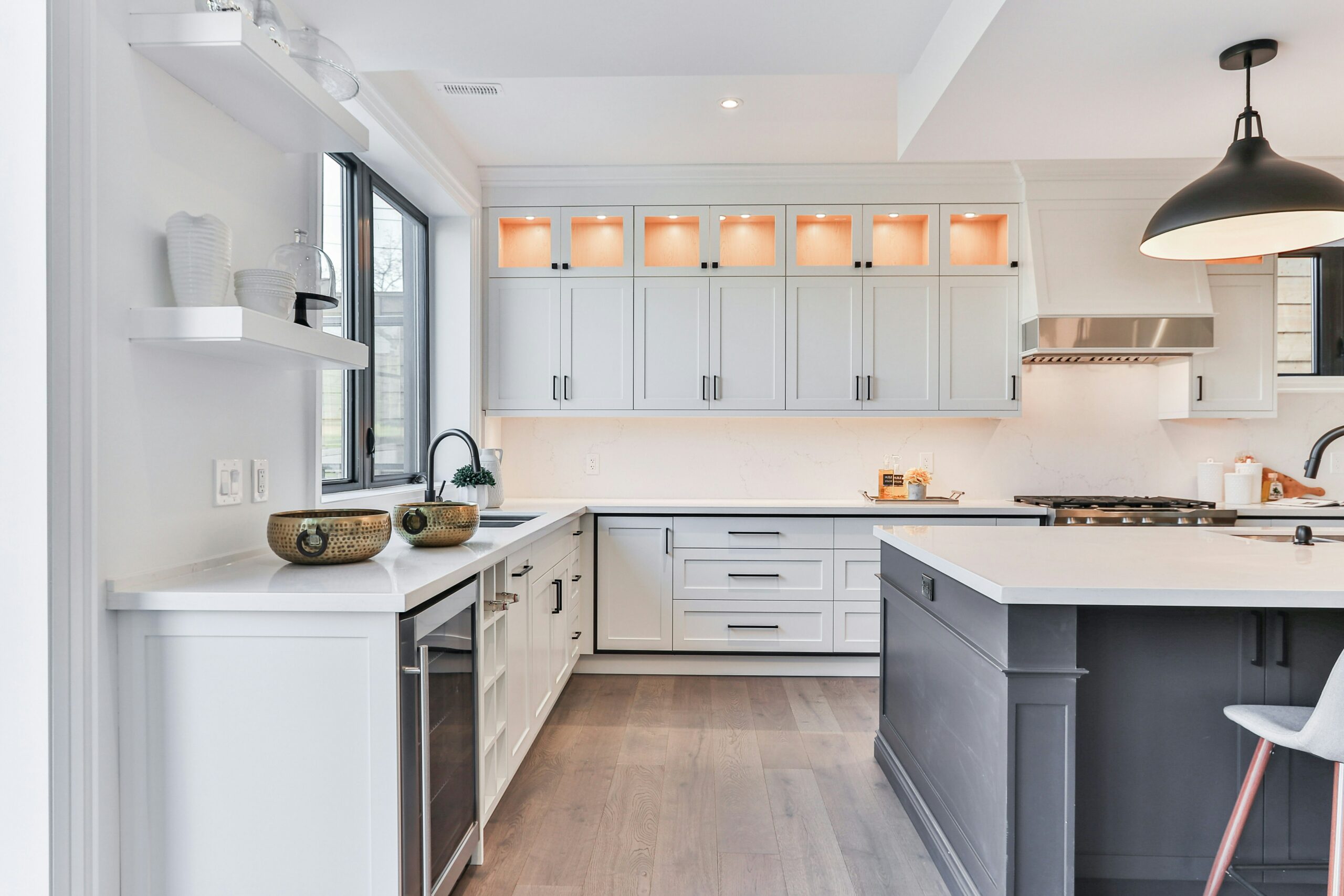
Pros and Cons of Choosing Quartz Countertops
Quartz countertops have become increasingly popular in recent years due to their durability, versatility, and aesthetic appeal. However, like any other material, quartz countertops also have their pros and cons. In this section, we will explore the advantages and disadvantages of choosing quartz countertops for your kitchen or bathroom.
Pros of Choosing Quartz Countertops
-
- Durability: One of the biggest advantages of quartz countertops is their durability. Quartz is an extremely hard and non-porous material, making it resistant to scratches, stains, and heat. It is also less likely to chip or crack compared to other countertop materials.
- Low Maintenance: Quartz countertops are very easy to clean and maintain. Unlike natural stone countertops, quartz does not require sealing. You can simply wipe it clean with a mild detergent and water. This makes it a great choice for busy households or those who want a low-maintenance countertop option.
- Design Options: Quartz countertops come in a wide range of colors, patterns, and finishes. Whether you prefer a classic, marble-like look or a bold, contemporary design, you can find a quartz countertop that suits your style. Additionally, quartz can be fabricated to mimic the look of other natural stones, such as granite or marble.
- Hygienic: Quartz countertops are non-porous, which means they are resistant to bacteria, mold, and mildew. This makes them a hygienic choice for kitchens and bathrooms, where cleanliness is essential.
Cons of Choosing Quartz Countertops
-
- Cost: Quartz countertops tend to be more expensive than other countertop materials, such as laminate or tile. The cost can vary depending on factors such as the brand, color, and thickness of the quartz slab. However, many homeowners believe that the durability and long-term value of quartz countertops justify the higher price.
- Not Heat Resistant: While quartz is generally heat resistant, it is not completely heat-proof. Placing hot pots or pans directly on the surface can cause thermal shock and potentially damage the countertop. It is recommended to use trivets or hot pads to protect the quartz surface from extreme heat.
- Seams: Quartz countertops are fabricated from multiple slabs, which means that seams are inevitable. While skilled installers can minimize the visibility of seams, they may still be noticeable, especially in larger countertops. Some homeowners prefer the seamless look of other materials, such as solid surface or granite.
- Not Completely Stain-Proof: While quartz is resistant to stains, it is not entirely stain-proof. Certain substances, such as red wine or coffee, if left on the surface for an extended period, can potentially cause staining. It is important to clean up spills promptly to avoid any permanent discoloration.
Considering the pros and cons mentioned above, it is important to weigh your priorities and preferences when choosing quartz countertops. While they offer many benefits, they may not be the perfect choice for everyone. It is always recommended to consult with a professional before making a final decision.
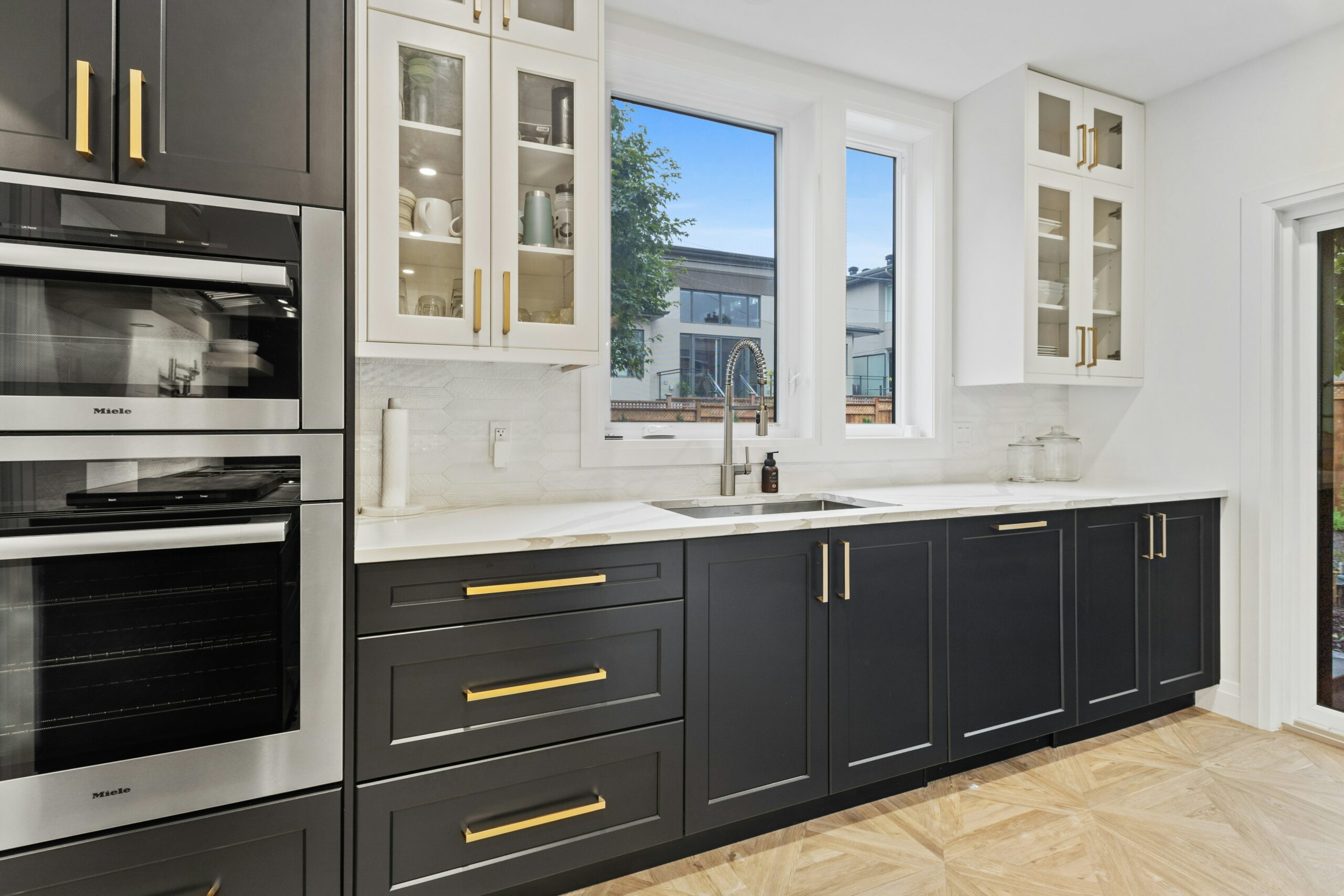
Comparing Quartz Countertops to Other Materials
When it comes to choosing the right material for your countertops, there are a variety of options available. One popular choice is quartz countertops, known for their durability and beauty. But how do they compare to other materials? Let’s take a closer look.
1. Natural Stone
Quartz countertops are often compared to natural stone options like granite and marble. While natural stone has its own unique beauty, it also comes with some drawbacks. Natural stone countertops require regular sealing to prevent staining and can be more prone to chipping and cracking compared to quartz.
2. Laminate
Laminate countertops are a more budget-friendly option, but they lack the durability and longevity of quartz. Laminate can be easily scratched or damaged, and it may not withstand heat as well as quartz. Additionally, laminate countertops can look less sophisticated and may not add as much value to your home.
3. Solid Surface
Solid surface countertops, like Corian, are another alternative to quartz. While solid surface materials offer a seamless look and can be repaired if damaged, they are not as heat-resistant as quartz. Solid surface countertops may also require more maintenance and can be more susceptible to stains and scratches.
4. Butcher Block
Butcher block countertops provide a warm and natural look to any kitchen. However, they require regular maintenance, including oiling and sanding, to keep them looking their best. Butcher block countertops are also more susceptible to water damage and can be easily scratched or dented.
5. Stainless Steel
Stainless steel countertops are a popular choice in commercial kitchens for their durability and resistance to heat and stains. However, they can be noisy and prone to scratching. Stainless steel countertops also have a distinct industrial look that may not suit every kitchen style.
6. Tile
Tile countertops offer endless design possibilities with a wide range of colors and patterns. However, they can be more difficult to clean compared to quartz. Grout lines can trap dirt and stains, and tiles can crack or chip over time. Tile countertops may also require regular resealing to prevent moisture damage.
Overall, quartz countertops offer a balance of durability, beauty, and low maintenance that sets them apart from other materials. While each material has its own unique characteristics, quartz is often the preferred choice for homeowners looking for a long-lasting and stylish countertop option.
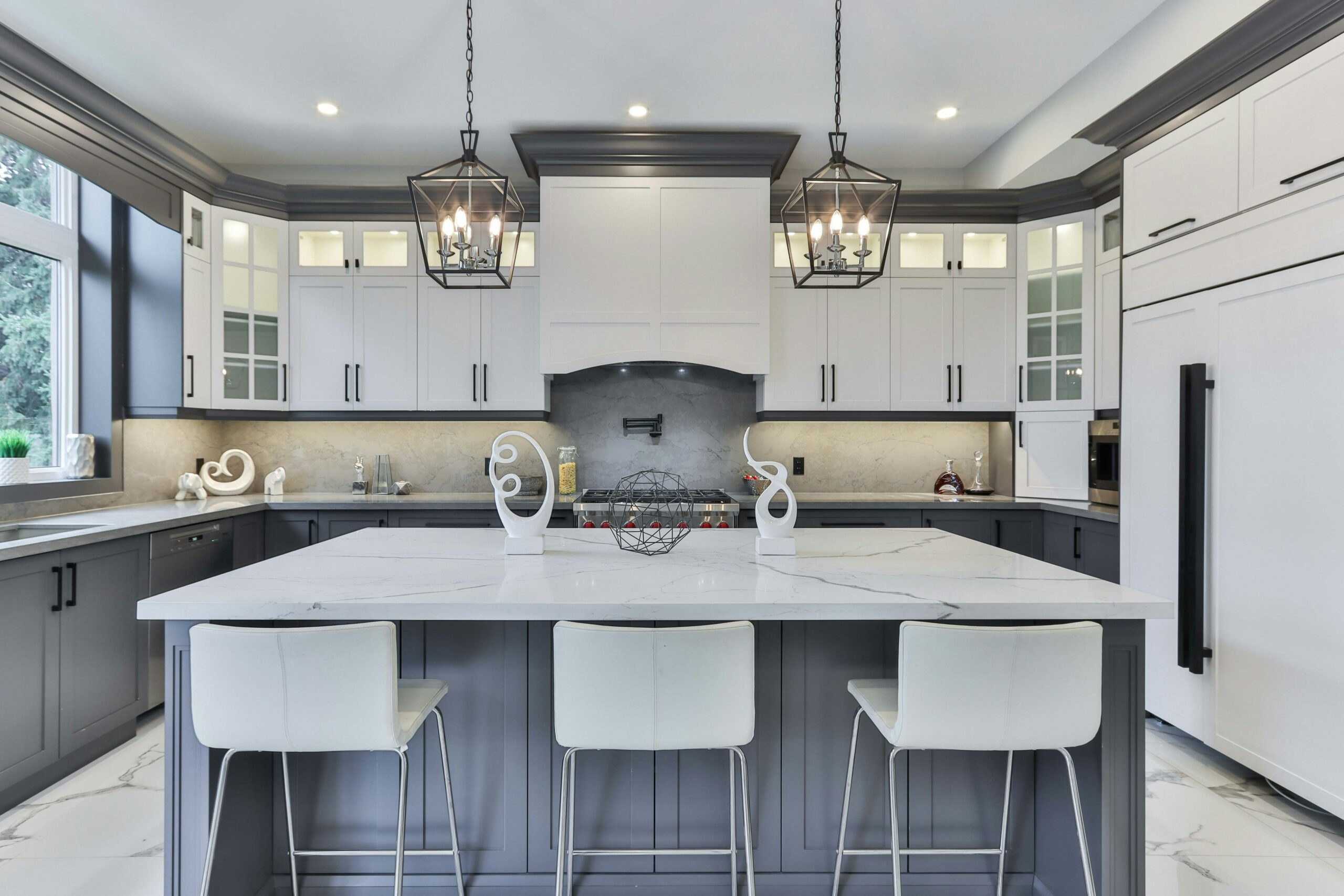
Benefits of Quartz Countertop in the Kitchen
Quartz countertops have become increasingly popular in kitchen design due to their numerous benefits. Here are some of the key advantages of choosing a quartz countertop for your kitchen:
Durability
One of the biggest advantages of quartz countertops is their exceptional durability. Quartz is an extremely hard and tough material, making it resistant to scratches, chips, and cracks. This durability ensures that your quartz countertop will withstand the daily wear and tear of a busy kitchen without losing its beauty or functionality.
Stain Resistance
Quartz countertops are non-porous, which means they are highly resistant to stains. Unlike natural stone countertops, quartz does not require sealing to protect it from spills and stains. This makes quartz an ideal choice for the kitchen, where spills and food stains are common.
Easy Maintenance
Keeping a quartz countertop clean and well-maintained is a breeze. Unlike other materials that require special cleaners or treatments, quartz can be easily cleaned with mild soap and water. Its non-porous surface also prevents the growth of bacteria and mold, making it a hygienic choice for the kitchen.
Wide Range of Colors and Designs
Quartz countertops offer a wide range of colors and designs to suit any kitchen style or aesthetic. Whether you prefer a classic, timeless look or a bold, contemporary design, there is a quartz countertop option that will complement your kitchen perfectly. From solid colors to marble-like patterns, the possibilities are endless.
Heat Resistance
Another benefit of quartz countertops is their heat resistance. Quartz can withstand high temperatures without being damaged or discolored, making it a safe choice for placing hot pots and pans directly on the surface. However, it is still recommended to use trivets or hot pads to protect the countertop and prolong its lifespan.
Longevity
Quartz countertops are known for their longevity. With proper care and maintenance, a quartz countertop can last for many years, making it a worthwhile investment for your kitchen. Its durability and resistance to stains and scratches ensure that it will maintain its beauty and functionality for a long time.
In conclusion, choosing a quartz countertop for your kitchen offers numerous benefits, including durability, stain resistance, easy maintenance, a wide range of colors and designs, heat resistance, and longevity. With all these advantages, it’s no wonder why quartz countertops have become a popular choice among homeowners and designers alike.
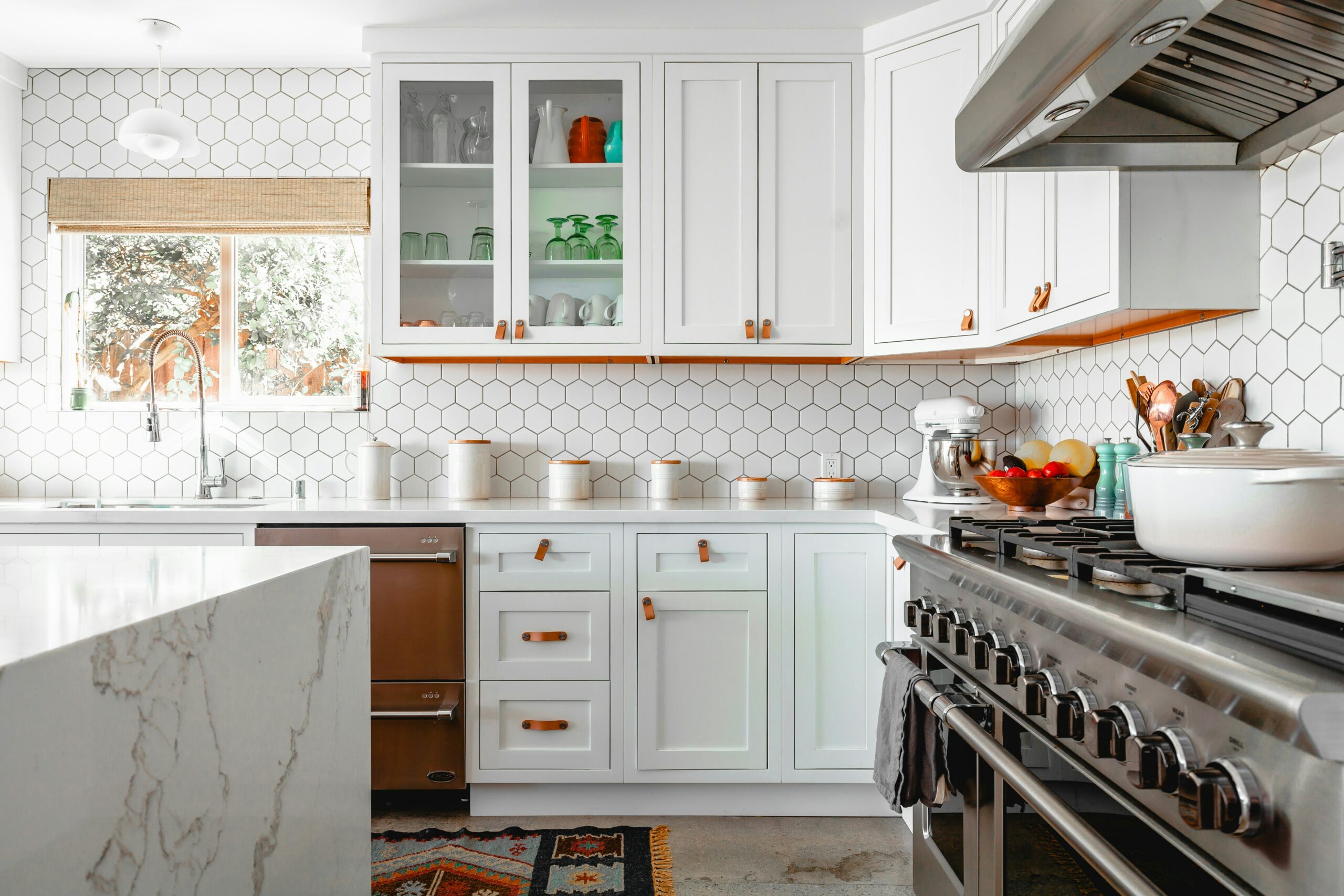
Factors Affecting the Cost of Quartz Countertops
When it comes to choosing quartz countertops for your kitchen or bathroom, one of the important factors to consider is the cost. The price of quartz countertops can vary depending on several factors. Understanding these factors can help you make an informed decision and stay within your budget.
1. Quality of the Quartz
The quality of the quartz used in the countertops can greatly affect the cost. Higher-quality quartz, which is more durable and has a more consistent color and pattern, tends to be more expensive. On the other hand, lower-quality quartz may have imperfections and variations in color, making it more affordable.
2. Brand and Manufacturer
The brand and manufacturer of the quartz countertops can also impact the cost. Well-known brands with a reputation for quality may have higher prices compared to lesser-known brands. Additionally, certain manufacturers may have higher production costs, which can be reflected in the price of their countertops.
3. Thickness of the Countertop
The thickness of the quartz countertop can also affect the cost. Thicker countertops are generally more expensive due to the additional material required. However, thicker countertops also tend to be more durable and can withstand heavy use and impact better than thinner ones.
4. Design and Customization
If you opt for a customized quartz countertop with unique designs, patterns, or edge profiles, the cost will likely be higher. Customization requires additional labor and materials, which can increase the overall price. On the other hand, standard designs and finishes are usually more affordable.
5. Size and Layout
The size and layout of your countertops can also impact the cost. Larger countertops or those with complex layouts, such as L-shaped or U-shaped countertops, may require more material and labor, resulting in higher costs. It’s important to consider the dimensions and layout of your space when estimating the cost.
6. Additional Features and Accessories
If you choose to add additional features or accessories to your quartz countertops, such as integrated sinks, backsplashes, or decorative edges, the cost will increase. These extras require additional materials and labor, contributing to the overall price.
7. Location and Market Factors
The cost of quartz countertops can also vary depending on your location and the local market. Prices may be higher in areas with higher demand or limited availability of quartz. Additionally, factors such as transportation costs and local labor rates can also influence the overall cost.
By considering these factors, you can better understand the cost of quartz countertops and make an informed decision that fits your budget and design preferences.
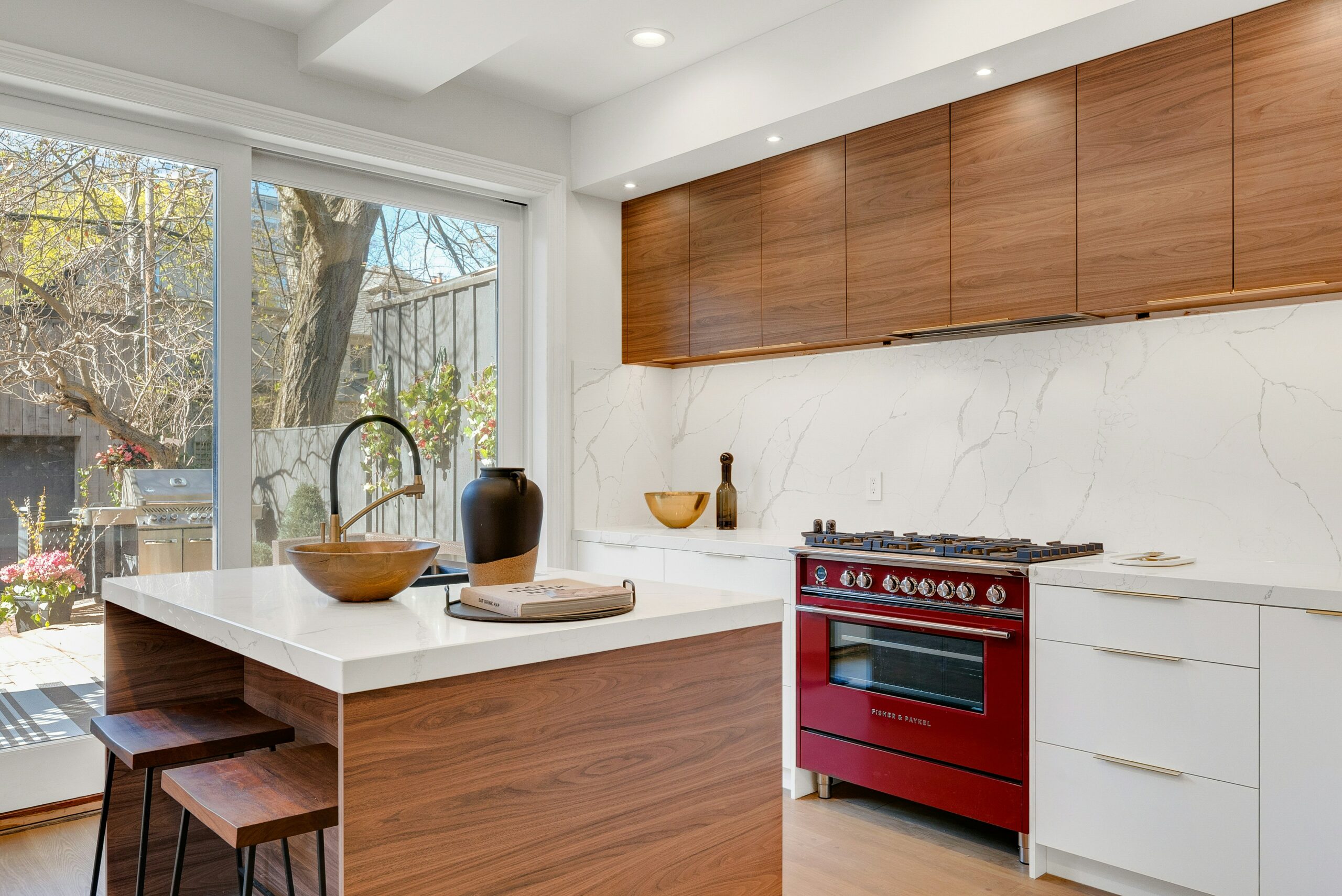
Installation Process of a Quartz Countertop
Installing a quartz countertop requires careful planning and precise execution to ensure a seamless and durable finish. Here is a step-by-step guide to the installation process:
1. Measure and Prepare
The first step in installing a quartz countertop is to accurately measure the dimensions of the area where it will be installed. This includes taking into account any cutouts for sinks or appliances. Once the measurements are taken, the existing countertop needs to be removed, and the area needs to be thoroughly cleaned and prepared.
2. Template Creation
After the preparation is complete, a template needs to be created based on the measurements taken. This template will serve as a guide for fabricating the quartz countertop. It is essential to ensure that the template is accurate and reflects the desired design and layout.
3. Fabrication
Once the template is ready, the fabrication process begins. This involves cutting the quartz slab according to the template and polishing the edges to achieve a smooth and seamless finish. The cutouts for sinks and appliances are also made during this stage.
4. Pre-Installation Inspection
Before the actual installation, a pre-installation inspection should be conducted to ensure that the fabricated quartz countertop meets all the necessary requirements and specifications. Any issues or discrepancies should be addressed before proceeding.
5. Installation
The installation process starts by applying a layer of adhesive or epoxy to the base cabinets. The quartz countertop is then carefully placed on top of the adhesive, ensuring a snug fit. It is crucial to level the countertop and make any necessary adjustments to achieve a seamless installation.
6. Sealing and Finishing
Once the countertop is in place, the seams are sealed using a color-matched adhesive to create a smooth and cohesive appearance. The edges are also finished and polished to enhance the overall aesthetic appeal of the quartz countertop.
7. Final Inspection and Clean-Up
After the installation and finishing, a final inspection should be conducted to ensure that everything is in order. Any excess adhesive or debris should be cleaned up, leaving the quartz countertop spotless and ready for use.
By following these steps and entrusting the installation process to professionals, you can enjoy a beautiful and long-lasting quartz countertop in your home.
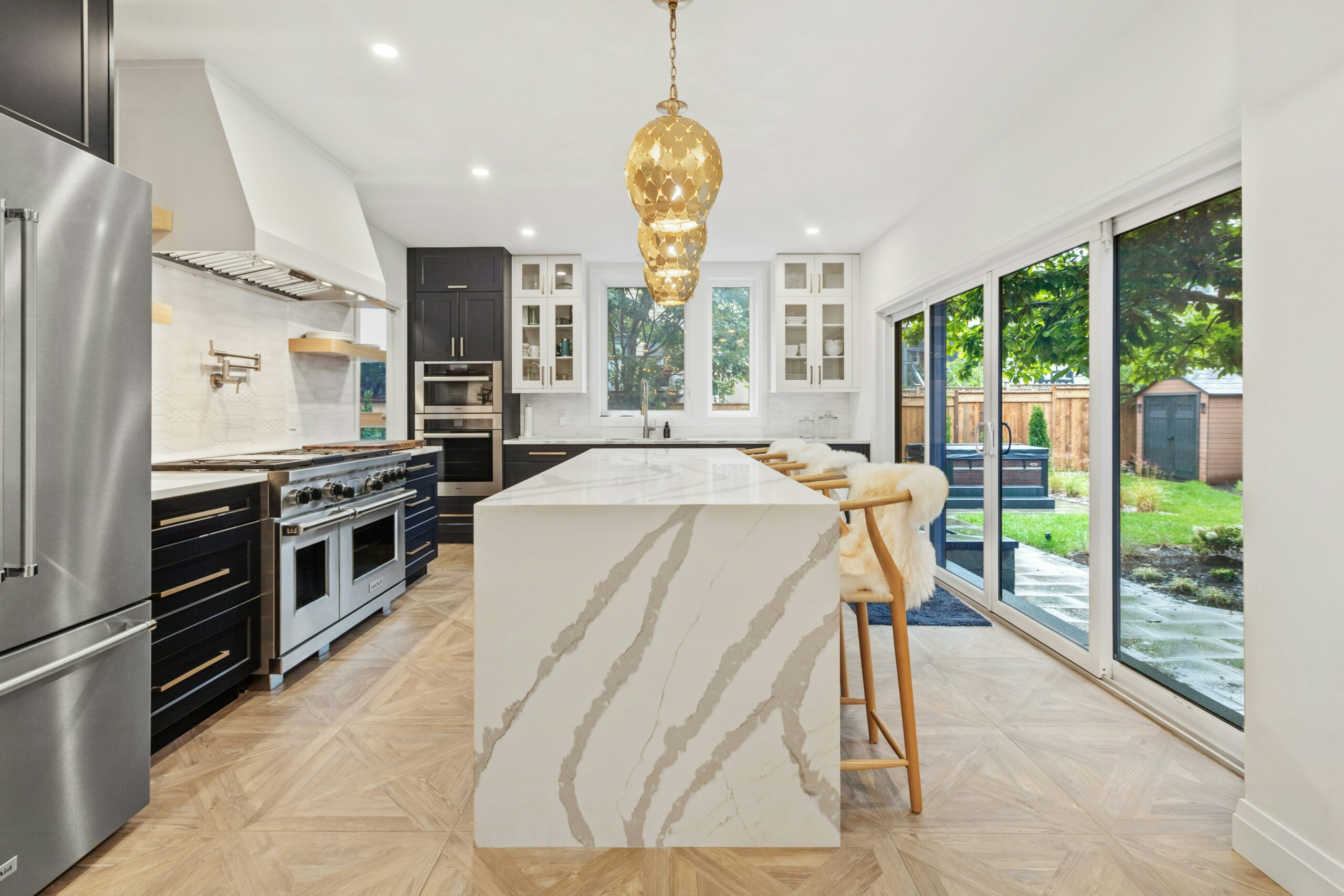
Innovation and Trends in Quartz Countertop Designs
Quartz countertops have been gaining popularity in recent years due to their durability, low maintenance, and aesthetic appeal. As technology advances, so do the designs and patterns available in quartz countertops. In this section, we will explore the latest innovations and trends in quartz countertop designs.
1. Unique Patterns and Colors
One of the most exciting trends in quartz countertop designs is the availability of unique patterns and colors. Manufacturers are now able to create quartz slabs that mimic the look of natural stone, such as marble or granite. These slabs feature intricate veining and patterns that add a touch of elegance to any kitchen or bathroom.
Additionally, there is a wide range of colors available in quartz countertops. From classic white and black to bold and vibrant hues, homeowners can now choose a quartz countertop that perfectly matches their design aesthetic.
2. Textured Finishes
Another trend in quartz countertop designs is the use of textured finishes. These finishes add depth and visual interest to the surface of the countertop. Popular textured finishes include leather, honed, and brushed. These finishes not only enhance the appearance of the countertop but also provide a tactile experience.
3. Waterfall Edges
Waterfall edges are a sleek and modern design trend in quartz countertop installations. This design involves extending the quartz slab down the sides of the island or countertop, creating a seamless and continuous look. Waterfall edges add a touch of sophistication and can make a bold statement in any kitchen or bathroom.
4. Thin Slabs
Thin slabs are becoming increasingly popular in quartz countertop designs. These slabs are thinner than traditional quartz countertops, typically measuring around 1cm in thickness. Thin slabs offer a more contemporary and streamlined look, perfect for modern and minimalist designs.
5. Geometric Patterns
Geometric patterns are making a comeback in quartz countertop designs. From hexagons to chevron patterns, homeowners are opting for countertops that feature bold and eye-catching geometric shapes. These patterns add a unique and modern touch to any kitchen or bathroom.
6. Integrated Sinks
Integrated sinks are a practical and stylish trend in quartz countertop designs. These sinks are seamlessly integrated into the countertop, creating a cohesive and streamlined look. Integrated sinks not only save space but also make cleaning and maintenance a breeze.
Overall, the innovation and trends in quartz countertop designs offer homeowners a wide range of options to choose from. Whether you prefer a classic and timeless look or a bold and contemporary design, there is a quartz countertop design that will suit your style and needs.

